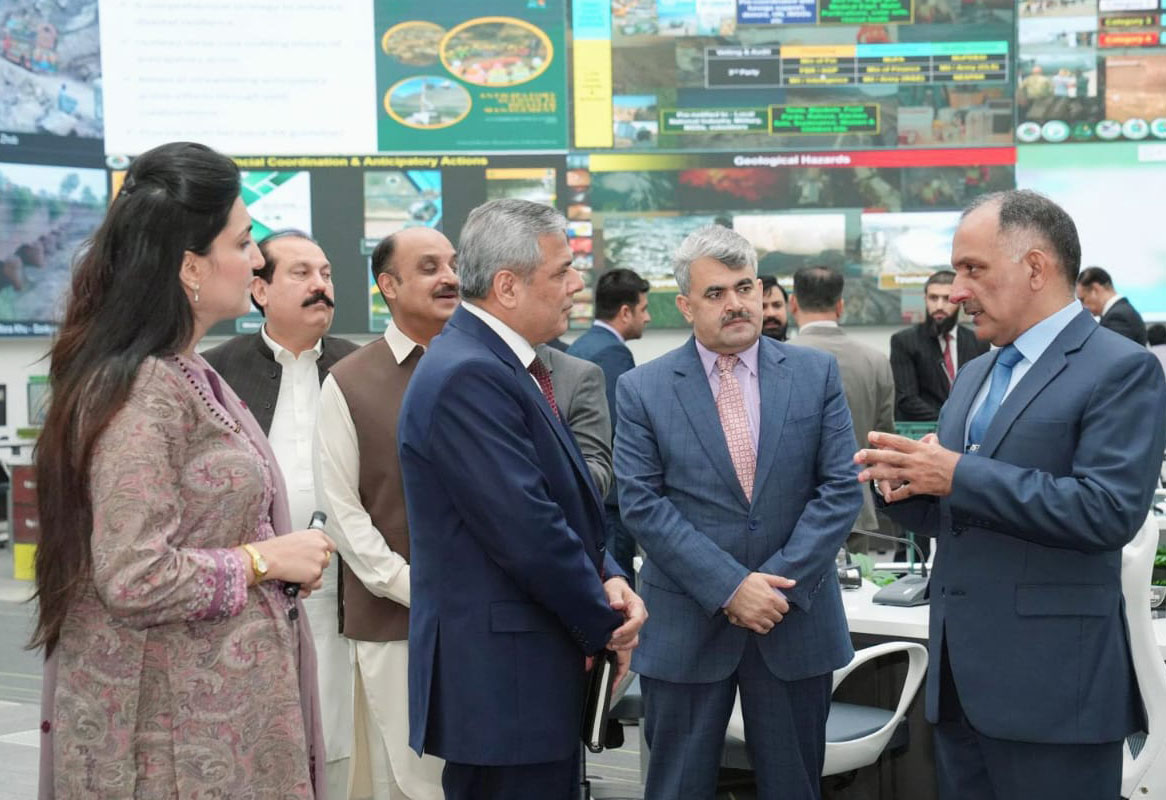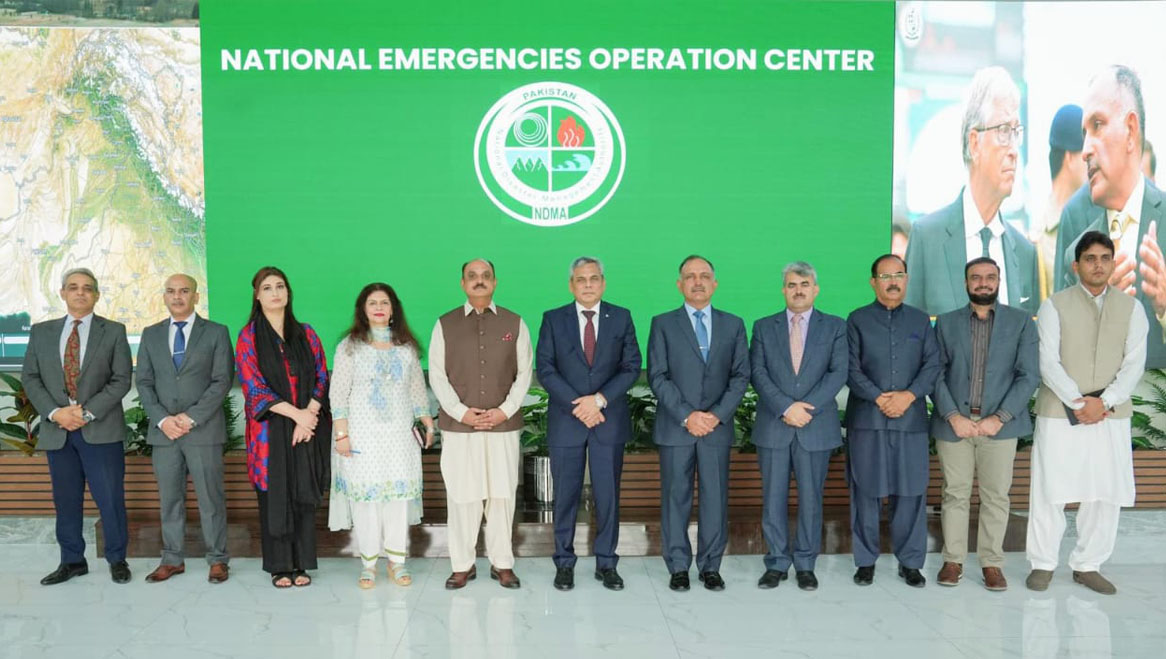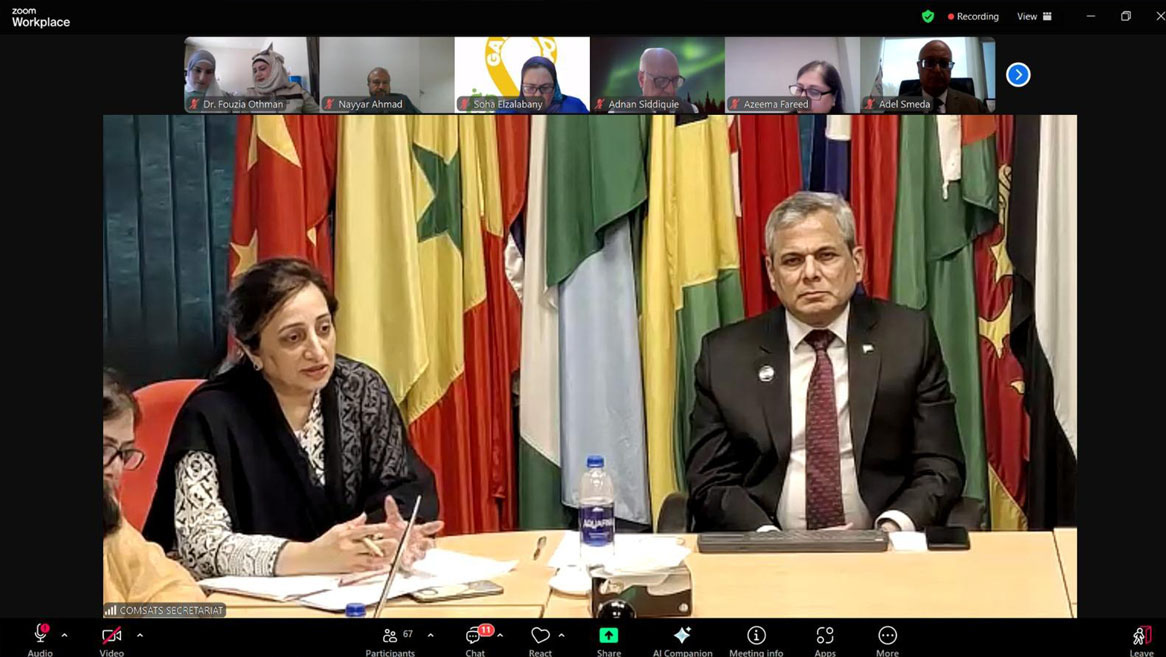Islamabad, July 2024 – A two-member delegation from COMSATS, led by Executive Director Ambassador Dr. Mohammad Nafees Zakaria and Additional Director (Int. Orgs.) and Head of CCCS, Dr. Mehwish Qayyum Durrani, visited the National Emergencies Operation Center (NEOC) at the National Disaster Management Authority (NDMA). The visit, conducted at the invitation of Chairman NDMA, Lt. Gen. Inam Haider Malik, for the demonstration of the state-of-the-art NEOC, the facility established by NDMA with a strategic vision to transition from reactive to proactive disaster management.

During this exposition visit, Dr. Zakaria expressed keen interest in the Center’s operations, which focus on innovative preparedness for climate-induced disasters in Pakistan. The delegation was introduced to the latest tools and technologies at NEOC, including real-time satellite feeds and the use of GIS, remote sensing, climatology, meteorology, seismology, hydrology, and data sciences. These systems enable NEOC to monitor and analyze hazards globally and locally, and anticipate disasters up to three months in advance – a crucial capability for a climate-vulnerable country like Pakistan.
Dr. Zakaria appreciated the center’s vision, concept, and operational framework. The visit was based on COMSATS existing collaboration with the National Institute of Disaster Management (NIDM) and aimed to foster this prevailing association. In April 2024, both organizations signed a Letter of Agreement to cooperate on areas such as climate resilience, adaptation, disaster management, ecosystem protection, health, agriculture, and water resources.

During the visit, COMSATS and NDMA also agreed to collaborate for joint representation at the upcoming UNFCCC Conference of Parties (COP29) in Baku, Azerbaijan. Their partnership will focus on Research & Development (R&D) and Science, Technology, and Innovation (STI) based approach to tackle challenges related to food security, water scarcity, droughts, displacements, health, and other climate-related crises, contributing to a safer and sustainable future.





